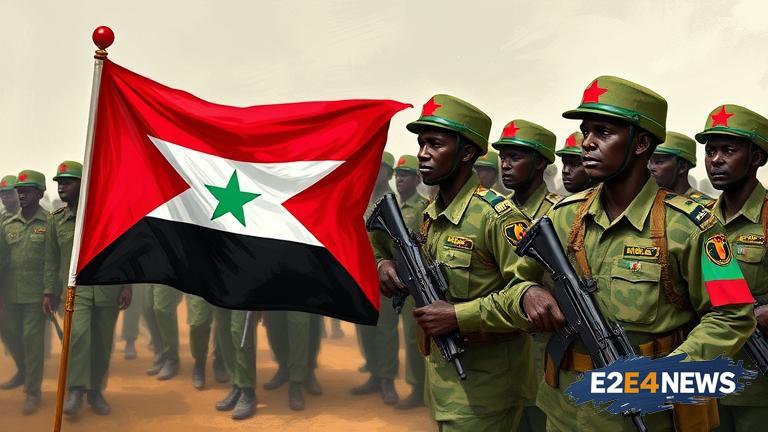A recent development in Sudan has seen a paramilitary-led coalition announce the formation of a parallel government, a move that has been met with widespread criticism and concern. The coalition, which is led by the Rapid Support Forces (RSF), has stated that the new government will operate in tandem with the existing transitional government, led by Prime Minister Abdalla Hamdok. However, this move has been seen as a challenge to the authority of the transitional government and has sparked fears of a potential power struggle. The RSF, which is a powerful paramilitary group in Sudan, has been instrumental in the formation of the parallel government, with its leader, Mohamed Hamdan Dagalo, playing a key role in the process. The parallel government has been formed in response to the transitional government’s perceived failure to address the country’s economic and political crises. The coalition has stated that the new government will focus on addressing the needs of the Sudanese people, including providing basic services such as healthcare and education. However, the formation of the parallel government has been met with skepticism by many, who see it as a power grab by the RSF. The transitional government has condemned the formation of the parallel government, stating that it is a threat to the country’s stability and democracy. The international community has also expressed concern over the development, with the United Nations and the African Union calling for calm and restraint. The situation in Sudan remains volatile, with many fearing that the formation of the parallel government could lead to further instability and conflict. The country has been plagued by political and economic crises in recent years, including a devastating civil war and a severe economic downturn. The transitional government, which was formed in 2019, has struggled to address these crises, and the formation of the parallel government has added to the uncertainty and instability. The RSF has a long history of involvement in Sudanese politics, and its leader, Mohamed Hamdan Dagalo, has been a key player in the country’s political landscape. The paramilitary group has been accused of human rights abuses and has been involved in several conflicts in the region. The formation of the parallel government has also raised concerns about the potential for further conflict and instability in the region. The international community has called for calm and restraint, and has urged all parties to engage in dialogue and work towards a peaceful resolution. The situation in Sudan remains complex and uncertain, with many different factions and interests at play. The formation of the parallel government has added to the complexity of the situation, and has raised concerns about the potential for further instability and conflict. Despite the challenges, many Sudanese remain hopeful that a peaceful and democratic solution can be found, and that the country can move forward towards a brighter future. The international community has pledged to support the Sudanese people in their efforts to build a more stable and democratic country. However, the road ahead will be difficult, and will require careful navigation and diplomacy. The formation of the parallel government has highlighted the need for a comprehensive and inclusive solution to the country’s crises, one that takes into account the needs and concerns of all Sudanese citizens. It remains to be seen how the situation will unfold, but one thing is certain – the fate of Sudan hangs in the balance, and the international community will be watching closely as events unfold.
